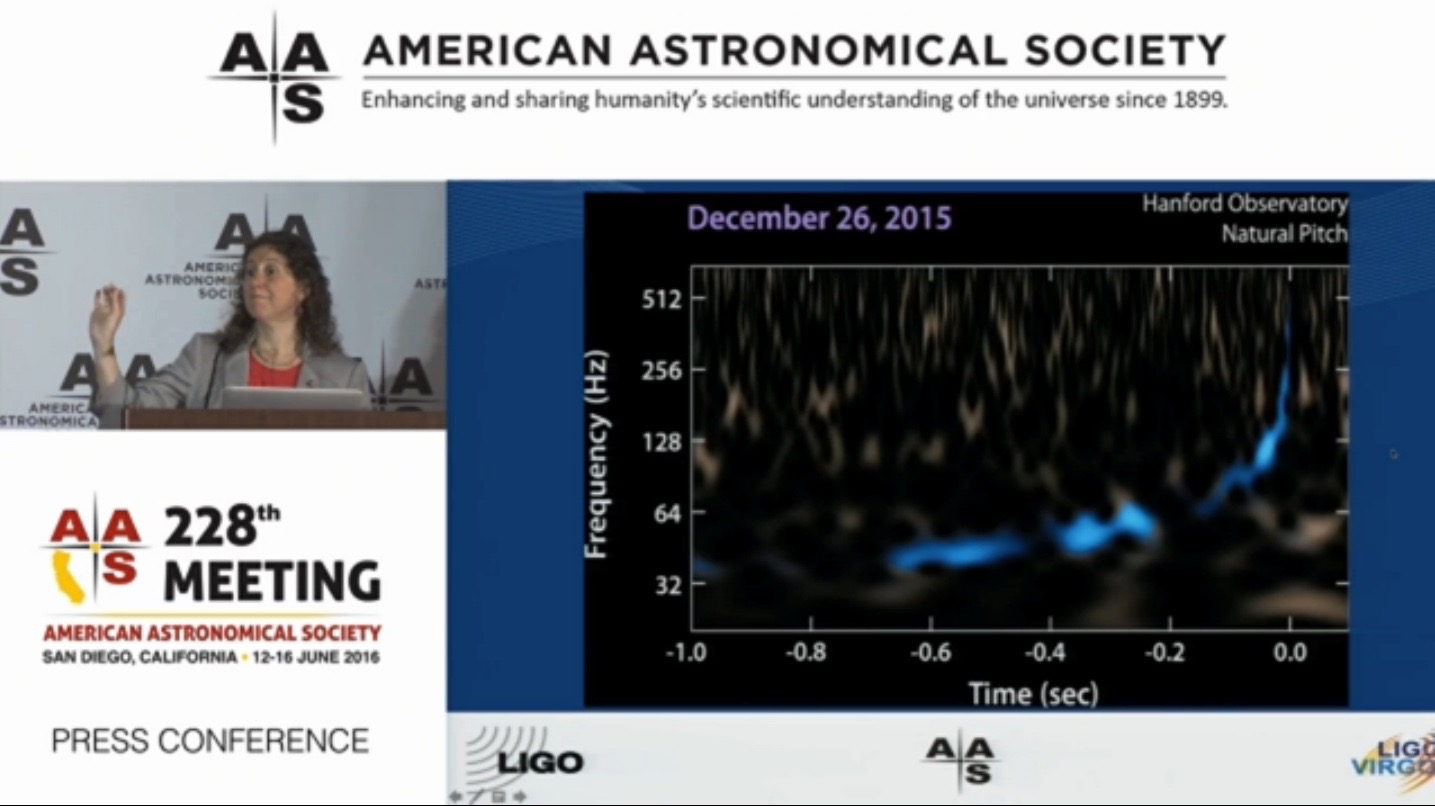
Scientists have added another song to the soundtrack of the universe.
On Wednesday (June 15), researchers with the Laser Interferometer Gravitational-Wave Observatory (LIGO) announced that they had directly detected gravitational waves — ripples in the fabric of space-time predicted by Albert Einstein a century ago — for the second time ever.
The LIGO team also made the first direct detection, which was announced in February. Back then, the researchers converted the gravitational-wave signal, which LIGO's two huge detectors in Louisiana and Washington state record as a light pattern, into sound waves.
The result was a thump that sounded a lot like a heartbeat — or, in a frequency-shifted version, like a chirp, or a raindrop falling into a half-full bucket.
The scientists also made the sonic conversion with this newly announced detection, giving people around the world a second helping of the sound of gravitational waves. You can hear it for yourself in this video.
"This is what we call gravity's music," LIGO Scientific Collaboration spokeswoman Gabriela Gonzalez, a professor of physics and astronomy at Louisiana State University, said during a news conference Wednesday at the 228th meeting of the American Astronomical Society in San Diego.
In both cases, the gravitational waves picked up by LIGO were created by the merger of two black holes. The first detection, which occurred on Sept. 14, 2015, involved black holes that harbored 29 and 36 times the mass of the sun, respectively. In the second one, which took place on Dec. 25, black holes eight and 14 times more massive than the sun collided. (Several months passed between each detection and its announcement because researchers needed to vet the finds fully, LIGO team members said.)
Get the Space.com Newsletter
Breaking space news, the latest updates on rocket launches, skywatching events and more!
The two events were a bit different, so it's not surprising that their gravitational-wave signals differ as well. For example, the Dec. 25 sonic signal is quite a bit longer and more drawn-out.
LIGO has made two gravitational-wave finds in relatively rapid succession, and a handful of other detectors are scheduled to come online in the near future. So we'll likely be hearing more versions of gravity's music in the months and years to come, scientists said.
"The era of gravitational-wave astronomy has begun," Gonzalez said.
Follow Mike Wall on Twitter @michaeldwall and Google+. Follow us @Spacedotcom, Facebook or Google+. Originally published on Space.com.
Join our Space Forums to keep talking space on the latest missions, night sky and more! And if you have a news tip, correction or comment, let us know at: community@space.com.

Michael Wall is a Senior Space Writer with Space.com and joined the team in 2010. He primarily covers exoplanets, spaceflight and military space, but has been known to dabble in the space art beat. His book about the search for alien life, "Out There," was published on Nov. 13, 2018. Before becoming a science writer, Michael worked as a herpetologist and wildlife biologist. He has a Ph.D. in evolutionary biology from the University of Sydney, Australia, a bachelor's degree from the University of Arizona, and a graduate certificate in science writing from the University of California, Santa Cruz. To find out what his latest project is, you can follow Michael on Twitter.









